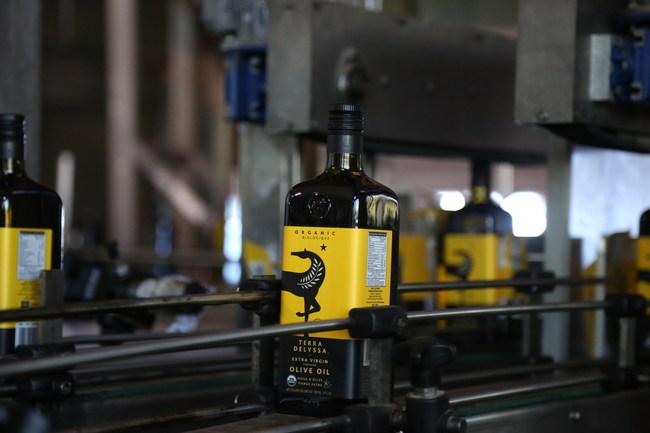IBM Food Trust Delivers Traceability, Quality Assurance to Major Olive Oil Brands With Blockchain
Olive Oil Producers From Around the World Join Ibm Food Trust to Help Ensure Product Integrity and Protect Against Fraud
IBM and olive oil producers Conde de Benalua, a cooperative in Spain made up of more than 2,000 farmers, and Rolar de Cuyo, an olive oil supplier in Argentina announced they are using IBM Food Trust on IBM Cloud to trace the lifecycle of their product and provide traceability, authenticity and quality for consumers. They join CHO, a Tunisia-based producer that makes Terra Delyssa brand olive oil, and I Potti de Fratini, a family-run oil mill in Italy, which joined IBM Food Trust earlier in 2020.
Recommended AI News: Scale Computing HCI: Improving Performance for Remote Workers from the Data Center to the Edge

Using blockchain technology, these companies from around the world are promoting greater consumer trust in their olive oil and working to create a more efficient and transparent supply chain.
Consumers’ demand for transparency and general distrust have been driven by recent reports of olive oil counterfeits and adulteration. That trend is reflected in a broader context, according to a recent IBM Institute for Business Value study, which found that 73% of consumers will pay a premium for full transparency into the products they buy.
“Our mission is to provide customers quality olive oil so they can enjoy a genuine and healthy product. Rolar de Cuyo’s objective in using blockchain technology is to ensure olive oil packers worldwide trust us and choose us. IBM blockchain technology provides the transparency we need to trace the origin of our products, complying with all quality processes to reach consumers’ tables,” said Guillermo José Albornoz, Rolar de Cuyo director.
IBM Food Trust uses IBM Blockchain technology and IBM Cloud to close the information gap for customers. By scanning a QR code on each bottle of olive oil, consumers can trace its production from the groves where the olives were grown, to the mills where they were processed into oil, to the stores where it is sold. They can see images of where the olives were picked and pressed and get to know the farmers and workers behind the scenes and even review what criteria was met for the oil in each bottle. For example, the tracing will show whether the olives were processed to the standards required to be labeled extra virgin olive oil.
Recommended AI News: StorMagic Enhances Security for Cloud Deployments Through New SvKMS Integrations
On the production side, members of the supply chain can work together with greater confidence and efficiency, creating a permanent digital record of transactions that can be easily shared with permissioned parties. This data within IBM Food Trust can also be used to help ensure the freshness of food, control storage times and reduce waste.
“Our Terra Delyssa brand of premium olive oil has seen a spike in demand since bottles of traceable olive oil reached stores shelves earlier this year. Consumers in the US and Canada can now buy Terra Delyssa premium extra virgin olive oil in more than 10,000 grocery stores and online platforms, with more retailers adding Terra Delyssa’s premium, traceable olive oil to their shelves,” said Chris Fowler, Sales Manager at CHO America.
The growing demand in early January helped CHO anticipate a spike in sales due to its new consumer traceability app. Supply chains had ample products on store shelves throughout the pandemic, during which time demand rose 30% due to an increase in consumers cooking at home.
CHO is now working on creating a separate enterprise application for distributors and retailers. This app will provide access to in-depth information about each processing and control stage that a certain lot has passed through, including whether it was first cold-pressed, extra virgin or organic, with analysis from CHO’s International Olive Council-accredited laboratory and third-party auditors.
“Our continuing work with olive oil producers demonstrates the growing momentum around Food Trust and our commitment to strengthening the chain that connects food from farm to table around the world,” said Raj Rao, general manager, IBM Blockchain Platforms. “There’s a growing desire among consumers to know where their food comes from and an increased business motivation to optimize processes with better supply insights. We’re able to work with olive oil producers and distributors provide a single source of secured and transparent information through IBM Blockchain technology.”
Recommended AI News: Everstream to Purchase Fiber Network Assets from Uniti
